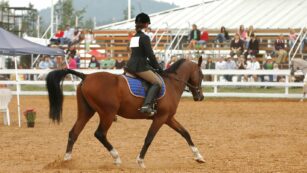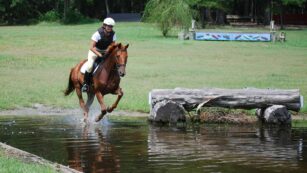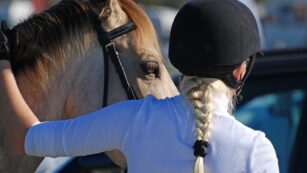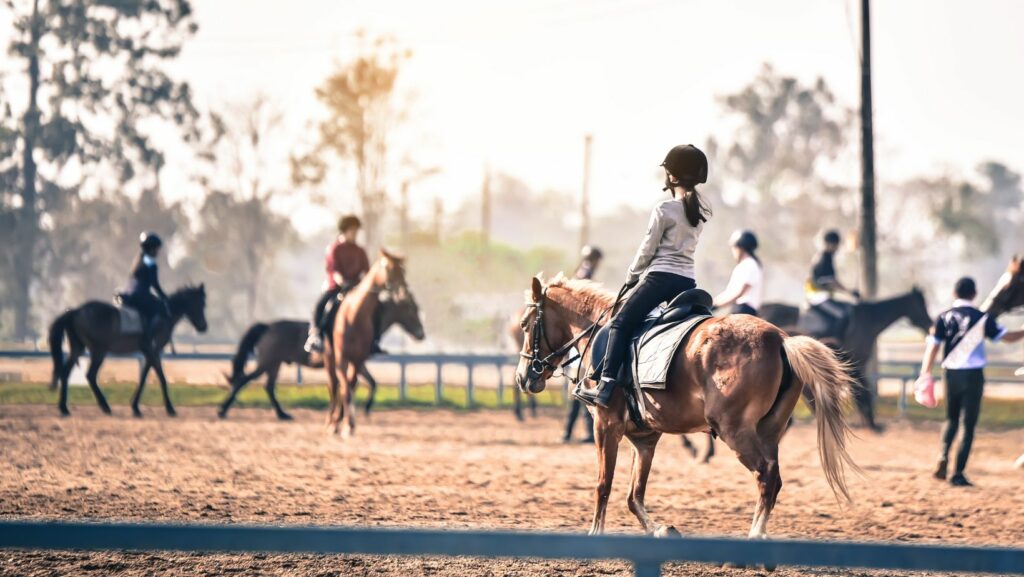Planning an equine event involves more than just a love for horses; it requires meticulous organization and an understanding of the unique needs of both equines and their handlers. From selecting the perfect venue to coordinating schedules and ensuring safety standards, the process can be complex but immensely rewarding.
Equine Event Planning
Selecting the Right Venue
 Choosing the right venue ensures optimal conditions for both horses and participants. Venues should offer adequate space, proper footing, and necessary facilities like stables and wash areas. Locations like large arenas or open fields may serve different types of equine events well. Evaluate the venue’s infrastructure, checking accessibility and parking for trucks and trailers.
Choosing the right venue ensures optimal conditions for both horses and participants. Venues should offer adequate space, proper footing, and necessary facilities like stables and wash areas. Locations like large arenas or open fields may serve different types of equine events well. Evaluate the venue’s infrastructure, checking accessibility and parking for trucks and trailers.
Understanding Safety Standards
Strict adherence to safety standards ensures the well-being of horses and participants. Event planners must enforce helmet use and proper riding gear. Emergency services should be readily available, including veterinary care and first aid. Inspecting the ground conditions for hazards is essential to prevent accidents.
Considering the Needs of Horses and Handlers
Understanding the needs of horses and handlers influences event success. Provide ample space for warm-ups and cooldowns. Ensure easy access to fresh water and shaded areas. Handlers benefit from clear information on schedules and event rules. Organize rest areas and provide detailed maps to assist in navigation.
Managing Logistics
 Efficient logistics management is crucial for smooth event execution. Coordinate transportation to ensure horses arrive on time and safely. Organize schedules to avoid conflicts and provide time for rest. Effective communication with participants, judges, and vendors prevents misunderstandings.
Efficient logistics management is crucial for smooth event execution. Coordinate transportation to ensure horses arrive on time and safely. Organize schedules to avoid conflicts and provide time for rest. Effective communication with participants, judges, and vendors prevents misunderstandings.
Effective promotion increases event visibility and attendance. Use social media platforms, email newsletters, and local advertisements to reach potential attendees. Collaborate with equestrian associations and clubs to broaden the promotional reach. Providing online registration options can simplify the process for participants.
Securing Sponsorship and Funding
Securing sponsorship and funding enhances the event’s quality. Approach local businesses, equine product companies, and agricultural suppliers for sponsorship. Offer advertising opportunities and visibility to attract sponsors. Transparent budget management and clear communication with sponsors build long-term partnerships.
Preparing for Contingencies
Preparation for contingencies addresses unexpected issues. Develop a contingency plan covering weather changes, medical emergencies, and logistical delays. Ensure backup resources, such as additional medical personnel and alternative transportation. Preparing for various scenarios minimizes disruptions and ensures smooth event flow.
Key Components of Equine Event Planning
Venue Selection
Choosing the right venue is critical. Venues need ample space, proper footing, and essential facilities. Organizers prioritize locations with safe stabling, adequate parking areas, and good access routes for horses and trailers. It’s also important to ensure the venue can accommodate the expected number of participants and spectators.
Budget Management
Effective budget management ensures the financial health of the event. Planners allocate funds for venue rental, staff payments, equipment, and emergency services. They also budget for marketing and promotional activities to attract participants and sponsors. Keeping track of all expenses helps prevent overspending and allows for financial contingencies.
Safety and Regulations
 Ensuring safety and complying with regulations are paramount in equine event planning. Safety protocols protect both participants and animals, creating a secure environment. Key aspects include emergency plans, veterinary support, and proper fencing.
Ensuring safety and complying with regulations are paramount in equine event planning. Safety protocols protect both participants and animals, creating a secure environment. Key aspects include emergency plans, veterinary support, and proper fencing.
Developing and implementing robust emergency plans is crucial. They should specify actions for various scenarios, for instance, horse injuries or weather-related issues. Staff must be trained in these procedures to guarantee prompt responses.
Veterinary Support
Having qualified veterinary support on-site is mandatory. Vets provide immediate care for injuries and monitor horse health. On-call veterinary services should also be arranged for emergencies that occur off-schedule.
Proper Fencing
Installing proper fencing prevents accidents and ensures horses stay within designated areas. Fences must be sturdy, with no gaps where horses might escape. Regular inspections ensure ongoing reliability.
Regulatory Compliance
Complying with local, state, and federal regulations is essential. Organizers should familiarize themselves with relevant laws related to animal welfare, event permits, and safety standards. Non-compliance can result in fines and event cancellation.
Insurance
Securing comprehensive insurance coverage mitigates financial risks. This typically includes liability insurance, property insurance, and coverage for participants and staff. Adequate insurance protects against unforeseen incidents, making events more resilient.

